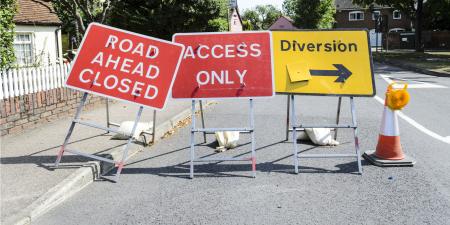The first juvenile court was established in Cook County, Illinois, in 1899 [1]. Based on the legal principle of parens patriae (which emphasizes the state’s responsibility—and hence power—to act in the best interests of individuals who are unable to protect themselves), juvenile courts traditionally have emphasized rehabilitation rather than (as in traditional courts) punishment of the offender [1]. Legal matters typically addressed in juvenile and family courts include delinquency, child abuse, and custody. Because juvenile courts since their inception have emphasized treatment and rehabilitation rather than punishment, mental health professionals have played an especially important role in juvenile courts [2]. This discussion will focus particularly on evaluations of minors involved in the juvenile justice system, since in criminal matters juvenile courts may need to address such matters as the minor’s competence to understand his or her Miranda rights, fitness to stand trial or be sentenced, and eventual disposition (i.e., detention or treatment).
Expert mental health evaluations—forensic psychiatric evaluations—can be of great assistance to the legal system, but collaborating with the court requires a clear understanding on the expert’s part of his or her role and limitations. The American Academy of Psychiatry and the Law defines forensic psychiatry as a subspecialty of psychiatry in which scientific and clinical expertise is applied in legal contexts involving civil, correctional, regulatory, or legislative matters and in specialized clinical consultations in such areas as risk assessment or employment [3]. Some important considerations in child and adolescent forensic practice are explored below.
Clarifying the Role of the Forensic Psychiatrist
It is important to distinguish between a psychiatrist who treats patients in a correctional setting and a psychiatrist who functions as a forensic evaluator. The former has a therapeutic relationship with and a duty to the patient. In contrast, no therapeutic relationship is established between the forensic evaluator and the minor being evaluated; the forensic evaluator’s primary duty is to serve as an objective expert to the court. In that role, the expert’s opinion may harm the minor’s interests—for example if he or she opines that the juvenile defendant is fit to stand trial and thus will be forced to face the legal consequences of his or her acts.
Therefore, in the initial encounter with the minor, parent, or both, the evaluator should assess their understanding of the forensic evaluation, who requested it, and why. He or she should inform all parties that no therapeutic or treatment relationship will be established following the evaluation and make every effort to ensure they understand this distinction. Circumstances unique to the forensic evaluation and personal characteristics of the evaluator may obscure this distinction and thus should be considered:
- Children and adolescents may be less able than adults to understand these differences in a doctor’s role;
- The multiple interviews and history taking involved in forensic evaluation may mimic a treating relationship, lending themselves to misinterpretation; and
- Child and adolescent psychiatrists often interact differently with minors than many other adults do—adopting a more relaxed or friendly tone, using colloquial language, and addressing minors by their first names—particularly when minors are evaluated in detention facilities. This casual conversational tone and friendly demeanor increases the likelihood that minors will presume an ongoing relationship is being developed with the evaluator.
In summary, although the forensic evaluator has a unique duty to serve as an objective expert to the court, special circumstances in juvenile forensic evaluations may foster confusion between the roles of forensic evaluator and treating psychiatrist. Ensuring that minors and parents understand these differences is key to preserving any ongoing or future treatment relationships between the minor and mental health care professionals.
It is worth pointing out that treating psychiatrists may, at times, be asked to perform in a forensic role, and to the extent possible should resist doing so. As outlined above, the differences between the roles and purposes of forensic and treating clinicians can present critical challenges to someone who is functioning in a dual capacity. If the service request comes from the patient or parent, the treating psychiatrist should educate the patient or parent about the disadvantages of having the same psychiatrist serve in a dual capacity. Alternately, if the treating psychiatrist is subpoenaed or court-ordered to testify, he or she is always obliged to respond and should seek legal counsel before taking further action [4].
Legal and Ethical Responsibilities of the Evaluator
Even if the minor and parent both understand and accept the differences between the roles of clinical and forensic psychiatrists, the forensic evaluator may struggle to accommodate the obligations of forensic practice. The absence of a treatment relationship may prove especially challenging for the trainee accustomed to evaluating patients for the purposes of deciding upon treatment. In medical school and residency training, new doctors are encouraged to accept symptoms as reported by their patients, but, in the justice system setting, the evaluee may have a strong motivation to mislead the expert. Because the forensic psychiatrist has a primary duty to be an objective reporter rather than an advocate, an investigative, comprehensive approach is used to thoroughly delineate and substantiate reported symptoms and to interpret and assess the minor’s behavior during the interviews. This entails that the expert:
- Thoroughly investigate reported symptoms.
- Question minors about reported symptoms when they suggest a diagnosis that may impair fitness to stand trial or be sentenced; and
- Explore alternate explanations or causes for reported symptoms, for example medical illness, sleep disturbance, alcohol or drug abuse, maltreatment, or neglect.
- Wherever possible, verify all information received from or about the minor.
- Review all available pertinent prior psychiatric and medical records. If possible, arrange a telephone call with current mental health or medical care professionals; and
- Seek information from collateral sources including parents, other family members, teachers or coaches, school personnel, babysitters, child protection workers, probation officers, case managers, and so on.
The forensic evaluator must be alert to the potential for deliberate deception on the part of the minor or parent. Minors or parents might “fake good” or “fake bad” for any number of reasons, including:
- To avoid perceived stigma against being diagnosed with a psychiatric illness;
- To rapidly resolve or “move on” from legal conflicts;
- To avoid revealing information (e.g., drug or alcohol abuse, child maltreatment or neglect, previously unreported medical or psychiatric symptoms) perceived as being damaging or embarrassing;
- A belief that being found unfit to stand trial will result in charges being dismissed;
- Confusion about the evaluator’s role or the evaluation process; and
- Distrust of the “system” and limited willingness to engage with an evaluator who may be perceived as “against” the minor.
Over the course of the evaluation, the forensic psychiatrist may identify previously undiagnosed psychiatric disorders or may dismiss as invalid current or previous diagnoses. For example, he or she may find that the minor needs immediate or at least rapid medical intervention when:
- The minor or parent reports new symptoms or demonstrates signs of illness that cause clinical impairment;
- The minor or parent reports that current medications are no longer providing effective symptom management;
- The evaluator identifies a potential for significant risk associated with treatment, including potential drug-drug interactions, suboptimal dosing, and higher-risk treatment without sufficient clinical justification;
- The minor or parent reports a new or worsening pattern of drug or alcohol use; and
- The minor reports she is pregnant but has not discussed this with her parent or guardian.
Likewise, the forensic psychiatrist may determine, over the course of the evaluation, that the minor requires immediate or at least rapid social or educational intervention if:
- The minor reports being the victim of bullying or intimate partner violence;
- The minor reports being pressured into gang involvement, pressured to engage in illicit activities, or pressured to make certain decisions or take certain actions relative to his or her legal case;
- The minor or parent reports a significant change in the minor’s academic progress or functioning; and
- The forensic evaluator determines that the minor needs educational testing or enhanced educational services not currently provided. This may be especially important if psychological testing done as part of a forensic evaluation identified previously unaddressed learning disabilities or cognitive deficits.
Although the forensic psychiatrist has a primary duty as an objective expert, forensic practitioners should nonetheless “be bound by the underlying ethical principles of respect for persons, honesty, justice and social responsibility” [3]. When confronted with such conflicts, trainees are encouraged to seek the support of supervisors to identify appropriate interventions utilizing parents or guardians, health care providers, school administrators, teachers or coaches, social workers, probation officers, or other community resource people who can meet the minor’s needs.
Confidentiality
With minors and parents. In treatment settings, physicians have an ethical and legal obligation to preserve patient confidentiality and to protect the right of the patient to hold information private. Conversely, the juvenile court seeks a forensic psychiatric evaluation for the purpose of obtaining information about the minor. Because the practice of forensic psychiatry presents such significant obstacles to the maintenance of confidentiality, the forensic evaluator should inform minors and parents of the limits of confidentiality at the start of each interview, clearly communicating the following:
- The nature and purpose of the forensic evaluation;
- The absence of confidentiality. Special effort must be made to ensure all parties understand that information disclosed during the forensic evaluation may appear in a written report. For minors involved with the juvenile courts, the forensic report will most likely be provided to the judge, the state’s attorney, and the attorney representing the minor;
- The evaluator’s obligation as a mandatory reporter. Minors, parents, and other parties should be informed of the conditions and circumstances necessitating mandatory reporting;
- The right of the minor to refuse to participate in the evaluation overall or to refrain from answering specific questions. This is particularly important when answering would negatively impact the minor’s legal case; and
- If collateral information will be sought from outside parties, both the minor and parent should always be asked to authorize third parties to release information. However, when a forensic evaluation is requested by the court, a court order may preclude a refusal by the minor or parent to release information. If either the minor or parent refuses to allow the release of information, the evaluator should consider whether or not to inform the minor or parent that the information will be sought without his or her consent.
After the limits of confidentiality are reviewed in the initial forensic psychiatric evaluation, to ensure that the minor has adequately grasped the situation, he or she should be asked to:
- Explain the nature and purpose of the evaluation;
- Restate his or her understanding of confidentiality and the limits of confidentiality in the forensic evaluation;
- Describe how information provided may be used and to whom this information will be made available;
- Identify matters necessitating mandatory reporting; and
- Acknowledge his or her right not to participate in the evaluation.
Minors should be reminded of these limits at the start of every subsequent forensic interview, and their ongoing understanding of these considerations should be assessed.
Collateral contacts. In most instances, communication with collateral contacts takes place over the telephone. When interviewing collateral contacts, the forensic psychiatrist should:
- Identify his/her role and the nature and purpose of the evaluation;
- Emphasize the absence of confidentiality. Collateral contacts should be told that any information provided may appear in a written report provided to the court;
- Consider whether or not to inform the third party of the minor’s or parent’s consent or refusal to allow information to be released. If release was refused, the forensic evaluator can explain information is being sought pursuant to a court order;
- Understand information the collateral contact reports as “fact” and distinguish this from the contact’s stated opinions; and
- Protect confidential information. Although any information obtained in the course of a forensic evaluation could appear in the written report, the forensic psychiatrist should take care not to disclose confidential information to collateral contacts. The forensic evaluator might anticipate polite, deflecting responses to direct questions from a collateral contact.
Conclusion
In the practice of medicine there is an implicit promise that the doctor’s role is first and foremost to act in the patient’s best interest. As an expert witness, the role of the forensic psychiatrist is substantively different. If not explicitly informed of the nature of this role, juvenile evaluees, parents, and collateral contacts may understandably feel betrayed when the expectations of a patient-physician relationship—that the physician will treat or advocate for “the patient”—is not met. Court personnel may similarly misconstrue the forensic evaluator’s role and presume an overarching intent to advocate for the evaluee. Fairness to all parties demands a thorough evaluation and reporting of pertinent data, even when doing so may be seen as less than advantageous to either or even both parties in a legal matter. In concentrating on the duty to serve as an expert witness, the forensic examiner is best positioned to navigate the overlapping challenges presented by this interesting work.
References
- Fox SJ. The early history of the court. Future Child. 1996;6(3):29-39.
-
Melton GB, Petrila J, Poythress NG, Slobogin C. Psychological Evaluations for the Courts. 3rd ed. New York: The Guilford Press; 2007: 465.
-
American Academy of Psychiatry and the Law. Ethics guidelines for the practice of forensic psychiatry; adopted May, 2005. http://www.aapl.org/ethics.htm. Accessed August 29, 2013.
- Kraus LJ, Thomas CR, Bukstein OG, et al. Practice parameter for child and adolescent forensic evaluations. J Am Acad Child Adolesc Psychiatry. 2011;50(12):1299-1312.



